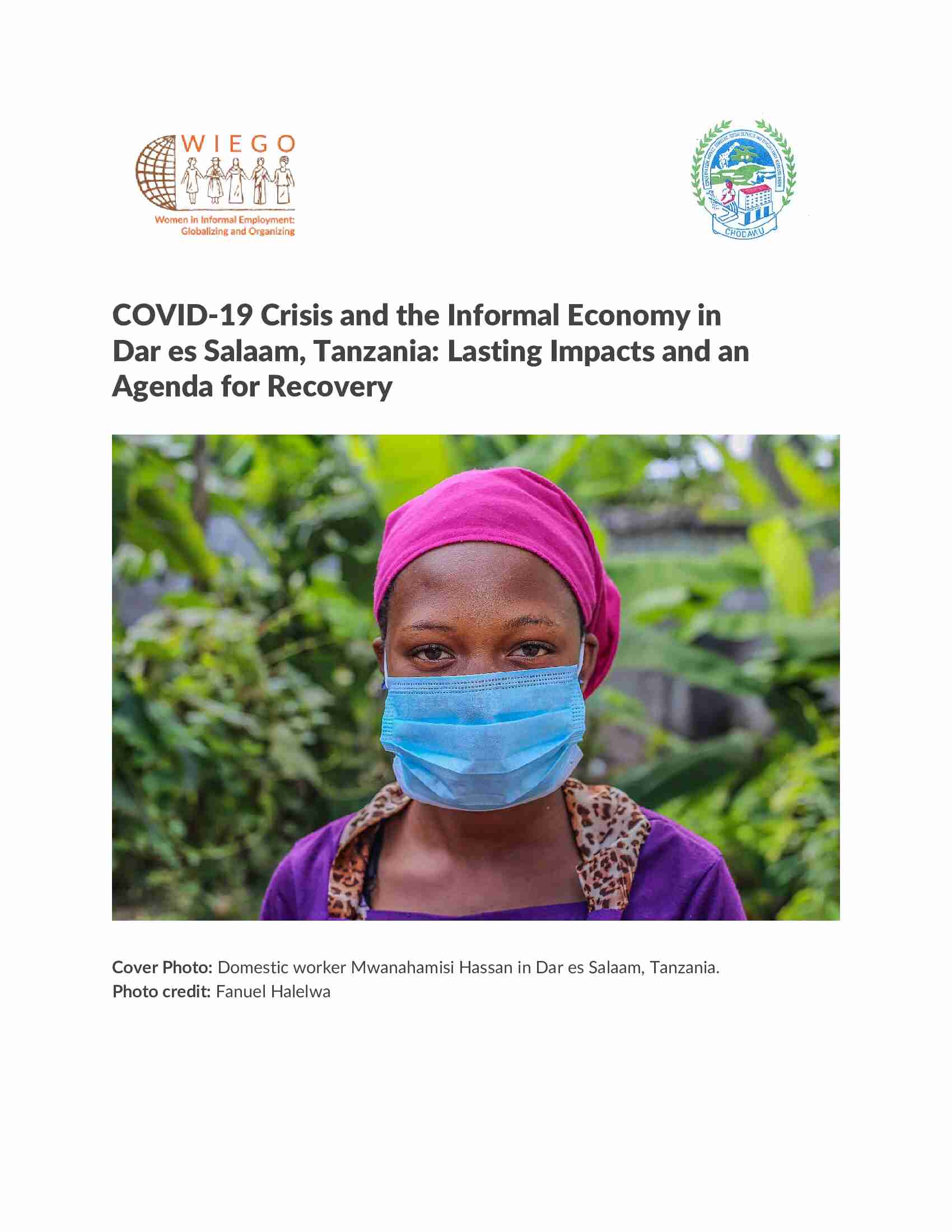COVID-19 Crisis and the Informal Economy in Dar es Salaam, Tanzania: Lasting Impacts and an Agenda for Recovery
Domestic workers’ limited legal and social protection in Tanzania has compounded the impact of the pandemic on workers’ socio-economic circumstances. This report presents Dar es Salaam findings from Round 2 of the WIEGO-led COVID-19 Crisis and the Informal Economy study that was conducted in mid-2021 to assess how specific groups of informal workers and their households were experiencing COVID-19 resurgences and ongoing economic strains, and to what extent (if any) they had recovered.
Key Findings
- Almost half of respondents (47%) reported hunger among adults in their household, and almost a third (30%) of respondents who have children under 16 in their households reported hunger among children. This is a significant increase from a year ago during Round 1 when 12% of respondents reported hunger among adults and children.
- In May 2021, almost all domestic workers (94%) interviewed reported working at least one day, compared to 87% in June 2020 and 84% in April 2020.
- Live-in domestic workers were now earning on average 77% of the amount live-out domestic workers were earning, compared to 96% of live-out earnings prior to the pandemic.
- One in five respondents (19%) reported increase in harassment/threats from employer, 17% reported increased isolation. More than a quarter of respondents (27%) reported that their mental and psychological stress had increased compared to pre-COVID-19.
- Of those respondents who drew down their savings since the start of COVID-19, more than half (55%) reported that they have not replaced these savings.
View list of all: Report

